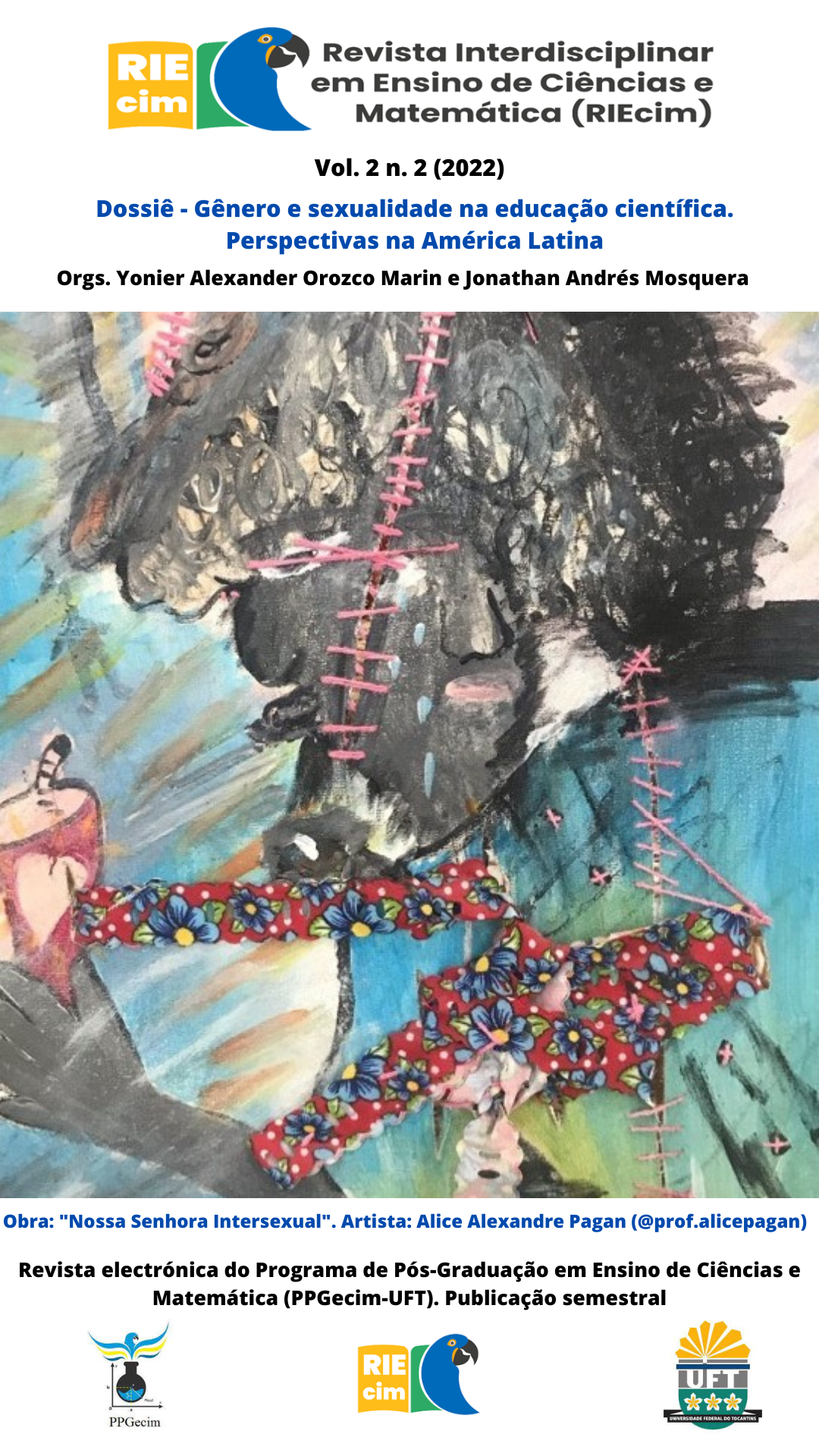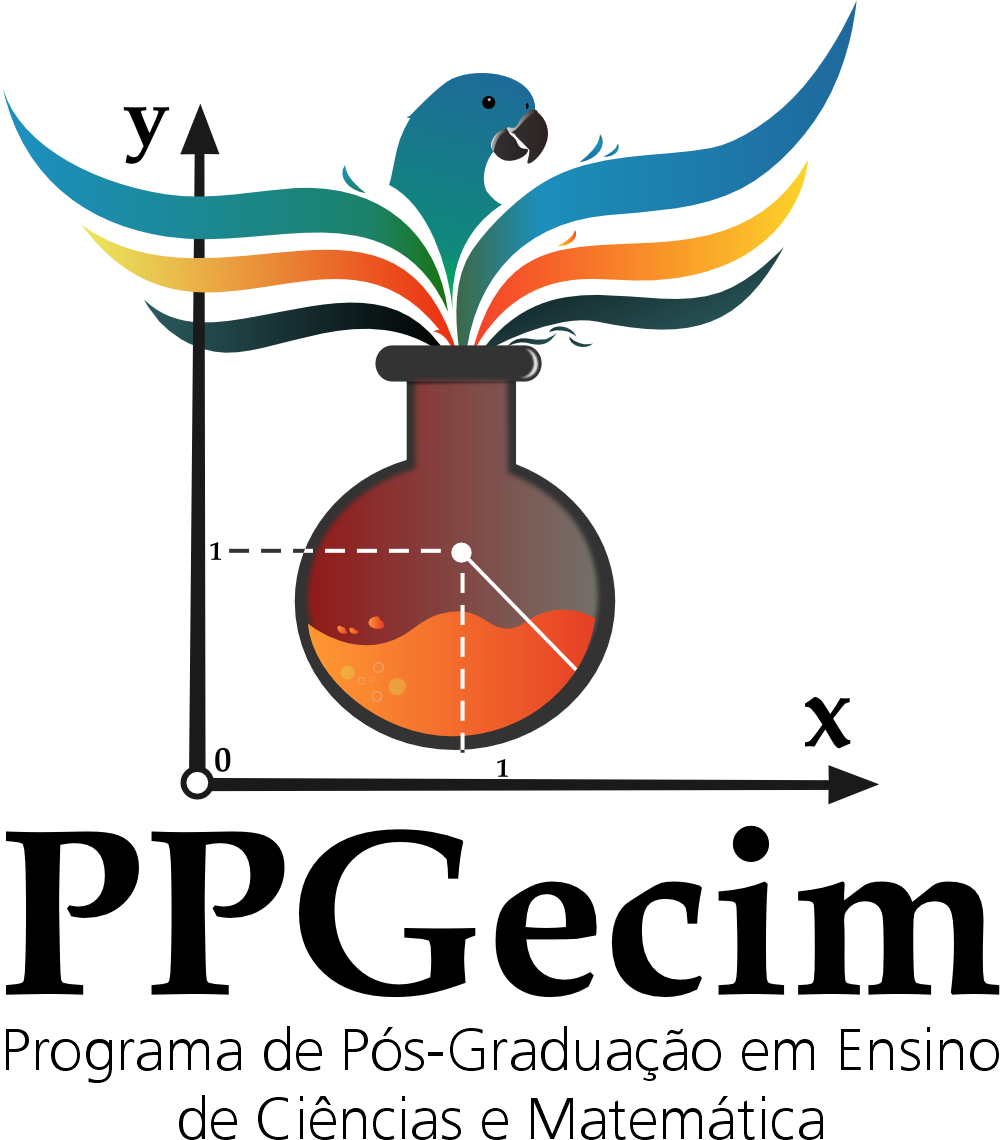COMMUNICATION WORKSHOPS IN THE DISCUSSION ABOUT GENDER, SEXUALITY AND RACE: AN EXPERIENCE REPORT
UM RELATO DE EXPERIÊNCIA
DOI:
https://doi.org/10.20873/riecim.v2i2.14811Keywords:
gender, sexuality, race, workshops, science teaching.Abstract
Currently, Brazil faces a conservative wave, expressed in actions such as the trivialization of the Mais Médicos Program; changes in mental health care policy; the dismantling of the fight against AIDS; prohibition of the term “obstetric violence”, etc. Added to this is the discrediting of science and the precariousness of the entire Brazilian educational system, supported by the movement and bill “Escola sem Partido”, which directly affects the discussion about race, gender and sexuality at school. Given this context, in this work, we present reflections resulting from the extension project, under development, "Communication, education and re-existences", at the NUTES Institute of Science and Health Education at UFRJ and at the Brant Horta Municipal School (EMBH). We seek to dialogue about Science and Health, using education/communication workshops as an opportunity for collective and permanent action, stimulating the construction of diverse narratives about being and being in the world. This work began in March 2019, with fortnightly meetings held at EMBH, encompassing a class of 25 students from Projeto Carioca II (Elementary School II).
References
ADICHIE, Chimamanda. Sejamos todas Feministas. Companhia das Artes, 2014.
ANDER-EGG, E. El taller uma alternativa de renovación pedagógica. Buenos Aires: Editorial Magisterio Del Río de La Plata, 1999.
BANDEIRA, A.; VELOZO, E. Livro didático como artefato cultural: possibilidades e limites para as abordagens das relações de gênero e sexualidade no Ensino de Ciências. Ciênc. educ. (Bauru), Bauru , v. 25, n. 4, p. 1019-1033, Oct. 2019.
CARNEIRO, S. Racismo, Sexismo e Desigualdade no Brasil. Selo Negro 1ªed. 2011.
CARVALHO, M. Relações entre Família e Escola e suas Implicações de gênero. Cadernos de Pesquisa, n° 110, p. 143-155, 2000.
COELHO, L.; CAMPOS, L. Diversidade sexual e ensino de ciências:buscando sentidos. Ciênc. Educ., Bauru, v. 21, n. 4, p. 893-910, 2015.
CRENSHAW, K. Mapping the margins: Intersectionality, identity politics, and violence against women of color. Stanford law review, 1241-1299, 1991.
DAVIS, Angela. Mulheres, Raça e Classe. Rio de Janeiro: Boitempo, 2016.
FRANTZ, F. Pele negra, máscaras brancas.Salvador: EDUFBA, 2008.
FAVRET-SAADA, Jeane. Ser afetado. Caderno de campo, 13, 2005.
FREIRE, P. Extensão ou Comunicação? Rio de Janeiro: Paz e Terra. 7 ed., 1983.
FREIRE, P. Pedagogia da autonomia. São Paulo: Paz e Terra. 25 ed.2002.
GESSER, M., OLTRAMARI, L. C., & PANISSON, G. Docência e concepções de sexualidade na Educação Básica. Psicologia & Sociedade, 27(3), 558-568, 2015.
GOMES, N. L. Educação, identidade negra e formação de professores/as: um olhar sobre o corpo negro e o cabelo crespo. Educação e pesquisa, 29(1), 167-182, 2003.
HOOKS, B. Yearnings: Race, gender, and cultural politics. Boston: South End Press., 1990.
IBGE - Instituto Brasileiro de Geografia e Estatística. Estudos e Pesquisas. Informação Demográfica e Socioeconômica n. 41. Rio de Janeiro: IBGE, 2019. Disponível em: https://biblioteca.ibge.gov.br/visualizacao/livros/liv101681_informativo.pdf
KAPLÚN, G. Una pedagogía de la comunicación. La Habana: Editorial Caminos, 2002.
KRASILCHIK, M.. Reformas e realidade: o caso do ensino das ciências. São Paulo em Perspectiva, v. 14, p. 85-93, 2000.
LEITE, A; RANNIERY, T. Profanar a saúde: será (im)possível um olhar queer? Revista Periódicus, 2a edição, 2015.
LOURO, G. L. Gênero, sexualidade e educação: uma perspectiva pós-estruturalista. 6a ed. Petrópolis: Vozes, 1997.
LUGONES, M. Rumo a um feminismo descolonial. Revista Estudos Feministas, Florianópolis, v. 22, n. 3, p. 935-952, 2014.
LUGONES, M. Colonidad y género. Tabula Rasa (9), pp.73-101. Núcleo Interdisciplinar De Estudos De Gênero - Universidade Federal De Viçosa. Pró-Reitoria de Extensão e Cultura, 2013/2014, 2008.
NASCIMENTO, A. Entrevista com Abdias Nascimento. Revista do Arquivo Nacional, Rio de Janeiro, v. 22, n. 2, jul./dez. 2009.
OLIVEIRA, Dalia; DUARTE, Marisa; FOGAÇA, Azuete. Política e trabalho na escola: administração dos sistemas públicos de educação básica. Belo Horizonte: Autêntica, 1999.
OYĚWÙMÍ, Oyèrónké. Conceptualizing Gender: The Eurocentric Foundations of Feminist Concepts and the challenge of African Epistemologies. African Gender Scholarship: Concepts, Methodologies and Paradigms. CODESRIA Gender Series. Volume 1, Dakar, CODESRIA, 2004.
PINHO, Raquel.; BASTOS, Felipe. Sentidos de sexualidade nos Anais dos Encontros Regionais de Ensino de Biologia RJ/ES (2001-2015). Revista da SBEnBio, Maringá/PR, n.9, 2016.
SOKÉ, Sobonfu. O Espírito da Intimidade. São Paulo: Odysseus, 2003.
VERRANGIA, D.;SILVA, B. Cidadania, relações étnico-raciais e educação: desafios e potencialidades do ensino de Ciências. Educação e Pesquisa, São Paulo, v. 36, n.3, p. 705-718, set./dez. 2010
Additional Files
Published
How to Cite
Issue
Section
License
Copyright (c) 2022 Rebeca Patricia Mendonça Machado, Ana Lúcia Nunes de Sousa, Gisele dos Santos Costa

This work is licensed under a Creative Commons Attribution-NonCommercial 4.0 International License.
Copyright Policy
Copyrights are retained by the authors, who grant RIEcim the exclusive rights for first publication. Authors will not be remunerated for the publication of their work in this journal. Authors are permitted to enter into separate, additional contractual arrangements for the non-exclusive distribution of the work's published version in this journal (e.g., post it to an institutional repository, on a personal website, publish a translation, or as a book chapter), with acknowledgement of authorship and initial publication in this journal. The Journal's editors have the right to make textual adjustments and adaptations to conform to publication standards.
Open Access Policy
This journal provides immediate open access to its content, following the principle that freely providing scientific knowledge to the public contributes to the global democratization of knowledge. Users can read, download, copy, distribute, print, search, or use the content for any legal purpose, respecting national copyright laws and without seeking prior permission from the publisher or the author. The opinions presented in the articles are the responsibility of the authors. The Journal does not charge Article Processing Charges (APCs).
Licensing Policy - Usage License
Licensed under the Creative Commons Attribution-NonCommercial 4.0 International (CC BY-NC 4.0) License. This license allows sharing, copying, redistributing the manuscripts published in RIEcim in any medium or format. Additionally, it allows adapting, remixing, transforming, and building upon the material, as long as proper credit is given to the author and initial publication in this journal is acknowledged.

































